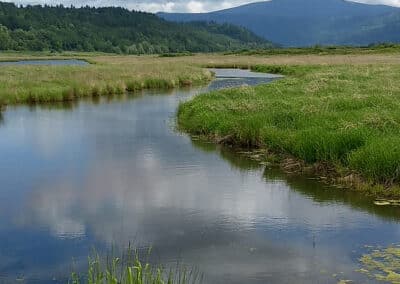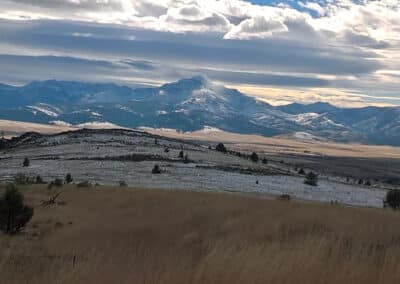Oregon Zombie Discharge Permits Part 2
In Which We Experience the Sheer Arrogance of Failing Agencies
By Nina Bell • November 28, 2020 •
How do you keep an agency from belly-flopping? Well, first off, if the agency has a history of responding to the political pressure to not do its job, trust history. Trust history over the vague assurances of agency officials who hasten to tell you that they have it all under control. And would you please just run along now and leave them alone!
Yeah, because on their watch, water pollution is getting so much better.
Having forced Oregon DEQ into a 10-year enforceable order to get its act together on issuing water pollution discharge permits, as described in Part 1, now let’s see what DEQ has managed to accomplish in the first year of that agreement. Did it live up to its promises?
Spoiler alert! Of course, it didn’t!
Before the pandemic, DEQ sat down with us to report on its progress. But first a little more background
In our settlement, we not only insisted on a schedule for DEQ to issue permits but we insisted on provisions to address one of main reasons DEQ’s program is broken: its refusal to require polluters to gather data on the quality of their discharges and the quality of the river or stream into which they are discharging. It’s fair to say that DEQ didn’t like us sticking our nose into what they consider their business.
We stuck to our guns though because it’s our job to make them do their job.
Why were these provisions essential? Well, because if a permit writer runs into a roadblock and gets stumped, then the whole agency is stumped. And pretty soon the agency is not issuing permits. Which is exactly what happened . . . for decades.
It turns out that it’s pretty easy to get stumped when you don’t have enough data.
Our court order also requires DEQ to take make sure that the data are collected well in advance of its issuing the new permits it’s been sitting on. DEQ’s response to those commitments at our one-year meeting? They told us that the agency was learning how to insert future monitoring requirements into new permits. Huh?
Yes, monitoring requirements are, well, required by the Clean Water Act. But that’s not a solution to how to issue a permit for which the data are many years old or never existed in the first place. And it’s certainly not what DEQ promised in our court order. Infuriating! Or maybe, just predictable.
But, the part of the meeting that really warmed my heart was when the agency staff told us that if they had been in charge back when the program began falling apart, it wouldn’t have happened. And so, we are told, don’t dig too deeply into whether or how we’re doing our job. We know what we’re doing. Run along now, you pesky environmentalists.



